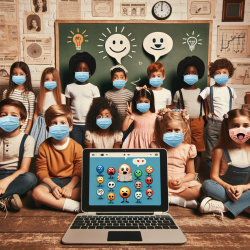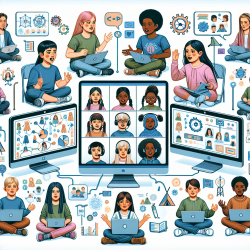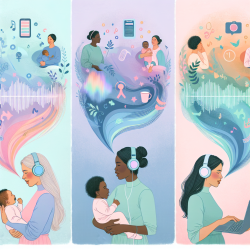The COVID-19 pandemic has introduced numerous challenges, particularly for young children who are in critical stages of language and social-emotional development. A recent study titled "The effect of face mask wearing on language processing and emotion recognition in young children" (Bourke et al., 2022) provides valuable insights into how face masks impact these essential skills. Here, we will explore the key findings of this study and discuss how practitioners can leverage these insights to improve outcomes for children.
Key Findings
The study involved 74 children aged 4 to 8 years from the North West of England. The researchers aimed to evaluate the effects of face masks on two main areas:
- Language Processing: Assessing whether face masks hinder the ability to understand and process spoken language.
- Emotion Recognition: Evaluating the impact of face masks on recognizing different emotions.
Language Processing
The findings revealed that face masks did not significantly impair children's basic language processing abilities. This was somewhat surprising, given that previous studies indicated adults experienced difficulty understanding speech when masks were worn. The study controlled for variables such as age, sex, listening comprehension, and reading ability, ensuring robust results.
One potential explanation is that while face masks obscure visual cues, they do not significantly degrade the auditory signal necessary for understanding speech. Additionally, children might be compensating by focusing more on the auditory input.
Emotion Recognition
Emotion recognition, however, was notably affected by face masks. The study found that:
- Anger: Better recognized when the face was masked.
- Happiness and Sadness: Less accurately recognized when the face was masked.
This discrepancy can be attributed to the importance of the mouth region in expressing positive emotions like happiness. In contrast, anger can be effectively conveyed through the eyes, which remain visible even when masks are worn.
Practical Implications for Practitioners
Given these findings, practitioners can take several steps to mitigate the impact of face masks on children's language and emotional development:
- Enhanced Auditory Cues: Focus on clear and articulate speech. Use of amplification devices in classrooms can also help.
- Non-Verbal Communication: Encourage the use of body language, gestures, and other non-verbal cues to aid in communication.
- Emotion Recognition Training: Implement activities that help children recognize emotions through the eyes and other facial features that are not covered by masks.
- Parental Involvement: Educate parents on the importance of practicing emotion recognition and language skills at home.
Encouraging Further Research
While this study provides critical insights, it also highlights the need for further research. Future studies could explore more ecologically valid settings, such as real classroom environments, to better understand the practical implications of these findings.
Additionally, investigating the long-term effects of prolonged mask-wearing on children's development would be valuable. Understanding these impacts can help in developing strategies to support children during and after the pandemic.
To read the original research paper, please follow this link: The effect of face mask wearing on language processing and emotion recognition in young children.










